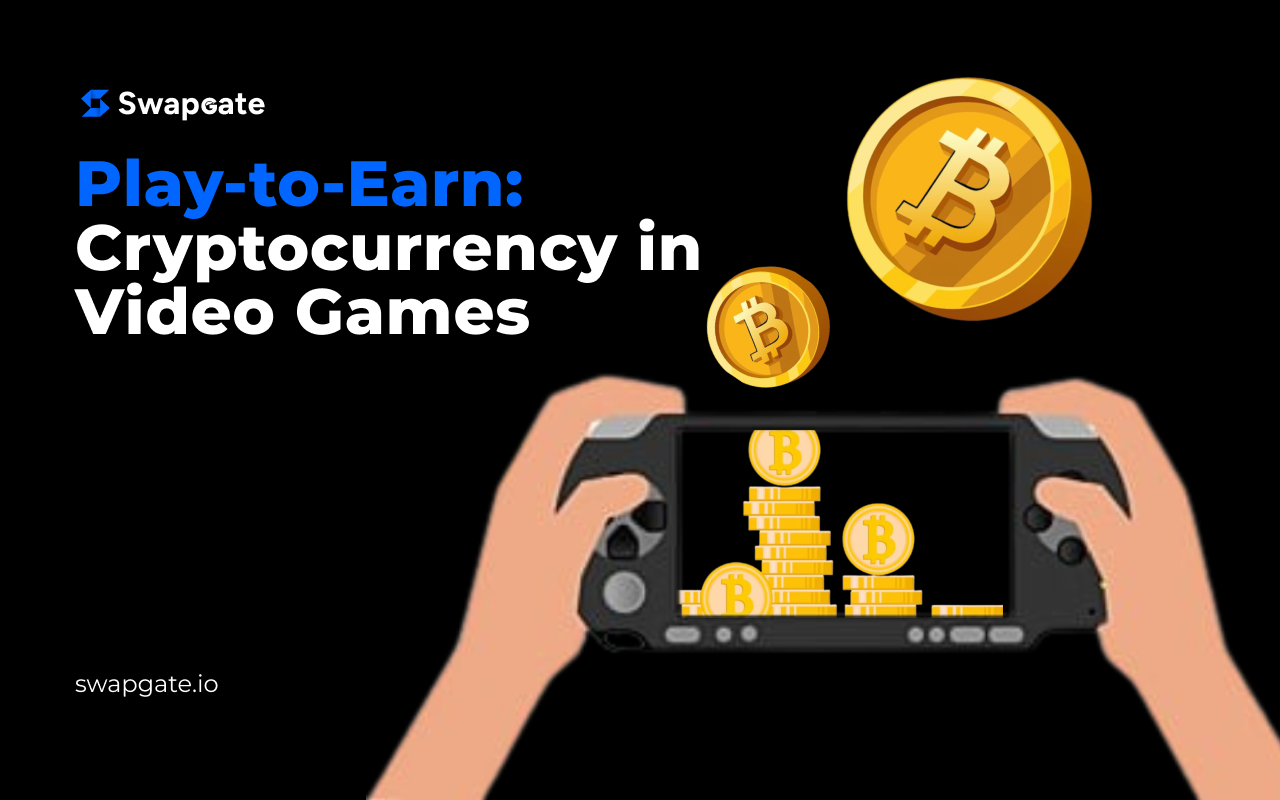
The gaming industry evolves every year, offering gamers new opportunities and ways to interact with virtual worlds. The introduction of blockchain technology and cryptocurrencies into the entertainment industry brings new gaming models that have the potential to redefine gaming as we know it! One of these innovations is the use of tokens, which allow players to earn real income and own virtual assets. In this article, we will discuss how cryptocurrency in video games is changing the gaming process and what it means for the future of the industry.
Cryptocurrency in Video Games: How It Works
The main idea behind the integration of cryptocurrency into video games is the creation of a decentralized in-game economy where players can earn and spend tokens while playing. Tokens are cryptocurrency assets that can be used as in-game currency to purchase items, characters, or upgrades, or even exchanged for real money.
Thanks to blockchain technology, each transaction becomes transparent and secure. This enables the creation of a platform independent of developers, where players can trade and exchange game assets. For instance, players can buy virtual land that they will own forever, regardless of changes in the game or decisions made by developers.
Cryptocurrency in video games not only adds a new level of interaction with virtual worlds but also allows players to earn real money. The Play-to-Earn (P2E) model is becoming increasingly popular, enabling players to earn income for their time and skills.
Play-to-Earn: A New Perspective on Gaming
Play-to-Earn is a game monetization model based on the use of cryptocurrencies. Unlike traditional games, where players spend money to buy content, here they can earn cryptocurrency for completing various tasks or achievements. Games like Axie Infinity and The Sandbox have already become prominent examples of successful Play-to-Earn integration.
In these games, users can buy, sell, and trade digital assets that exist on the blockchain in the form of non-fungible tokens (NFTs). NFTs represent unique virtual items—characters, skins, or rare artifacts—owned by only one person. This allows players not only to use their assets in the game but also to sell them on special platforms, earning real money.
Cryptocurrency in video games allows gamers to finally monetize their achievements and time investments, opening new paths for the gaming industry’s development. Many experts believe that Play-to-Earn will become an integral part of gaming’s future, offering players a completely new level of engagement and income opportunities.
How Blockchain Improves In-Game Economy
The in-game economy has traditionally been limited by the confines of the game itself, where developers control all financial system nuances. With the emergence of cryptocurrency in video games, this situation changes. Blockchain gives players full control over their assets, eliminating the risk that developers might change or delete your in-game items.
Additionally, blockchain simplifies trading between players, allowing fast and secure exchanges of assets without intermediaries. Virtual items are no longer tied to a specific game or platform—they can exist across different game worlds and even outside of them.
Blockchain technology also helps prevent fraud by making every transaction transparent and publicly accessible. This creates greater trust among players and stabilizes the in-game economy.
The Impact of Cryptocurrency in Video Games
The integration of cryptocurrency into video games opens new horizons for the industry. First, it gives players the ability to own their in-game items and use them beyond a single game. Second, thanks to decentralization, developers no longer have full control over the game economy, making it fairer for players.
Blockchain and cryptocurrency also attract investors to the gaming industry. Now, games can create their own tokens, which will be used to purchase assets, opening up new funding sources for game development.
Challenges and Prospects
Despite all the advantages, the implementation of cryptocurrency in video games faces certain challenges. One major issue is the high volatility of cryptocurrencies, which can cause significant fluctuations in the value of in-game assets. Regulation is another factor to consider: in some countries, cryptocurrency operations may be restricted or prohibited.
Nevertheless, the future lies with cryptocurrency in video games. Many experts predict that blockchain technology will play a key role in the gaming industry’s development. Players will gain more control over their digital assets, and developers will be able to create more sustainable and open economic systems.
To efficiently use cryptocurrency and quickly buy the tokens you need, use the online crypto exchange SwapGate. With no KYC requirements and no mandatory registration, you won’t waste time during exchanges. The best market rates and a wide selection of trading pairs are reasons why you’ll always find something to your liking.
Conclusion
Cryptocurrency in video games opens up a wealth of new opportunities for both players and developers. Thanks to blockchain and tokens, the in-game economy is becoming more open and secure, while Play-to-Earn models give gamers a real chance to earn money. In the future, such technologies will become an integral part of the gaming industry, changing our understanding of what it means to be a player. Cryptocurrency in video games is no longer just a novelty but an essential step toward new standards in the world of entertainment.